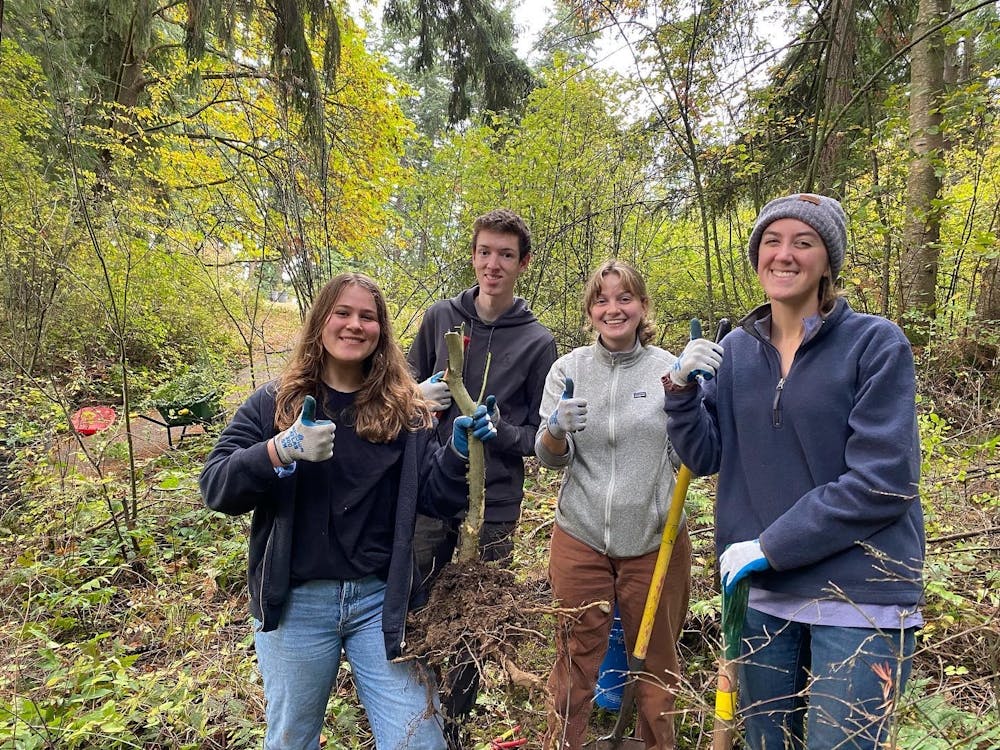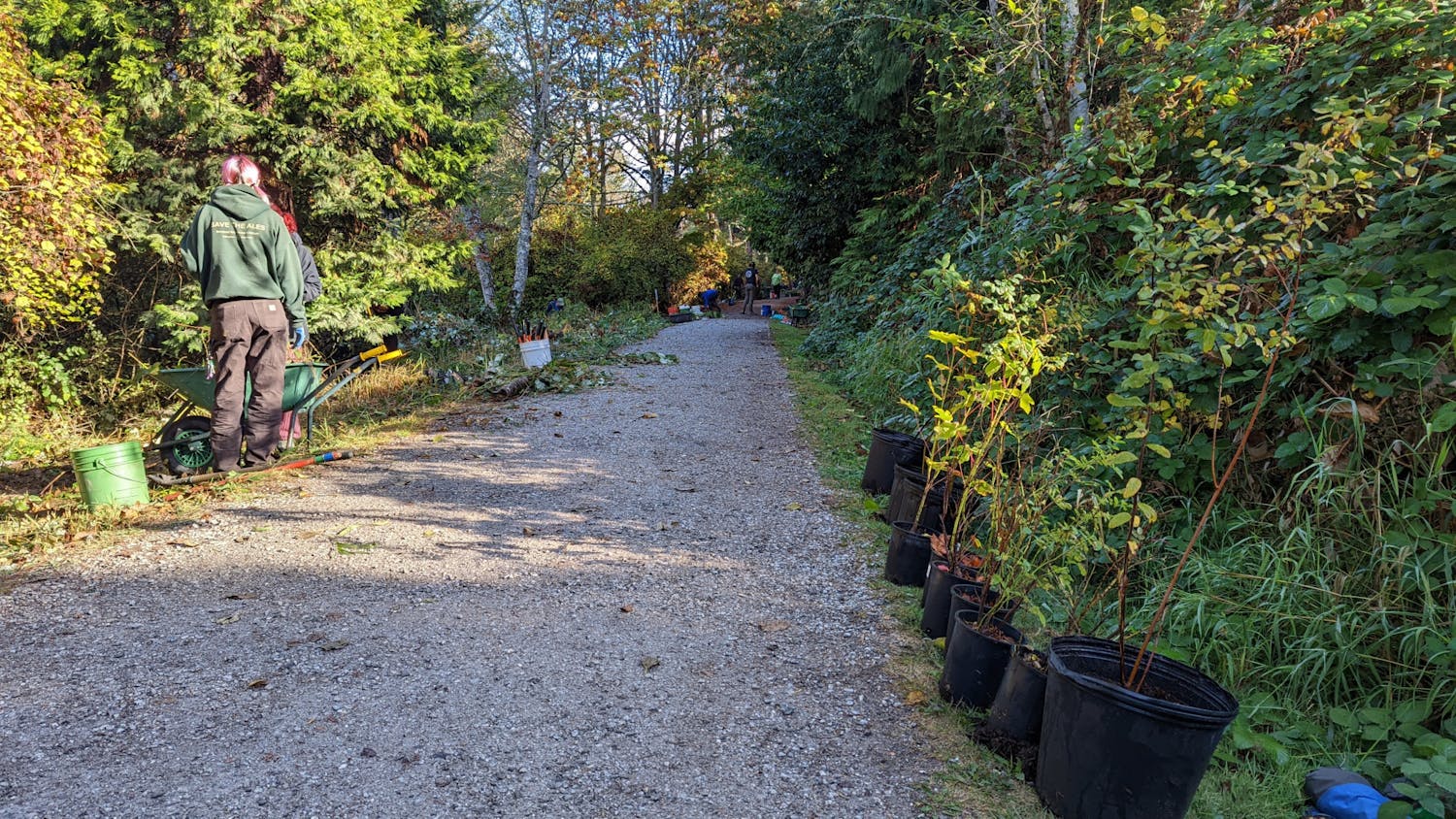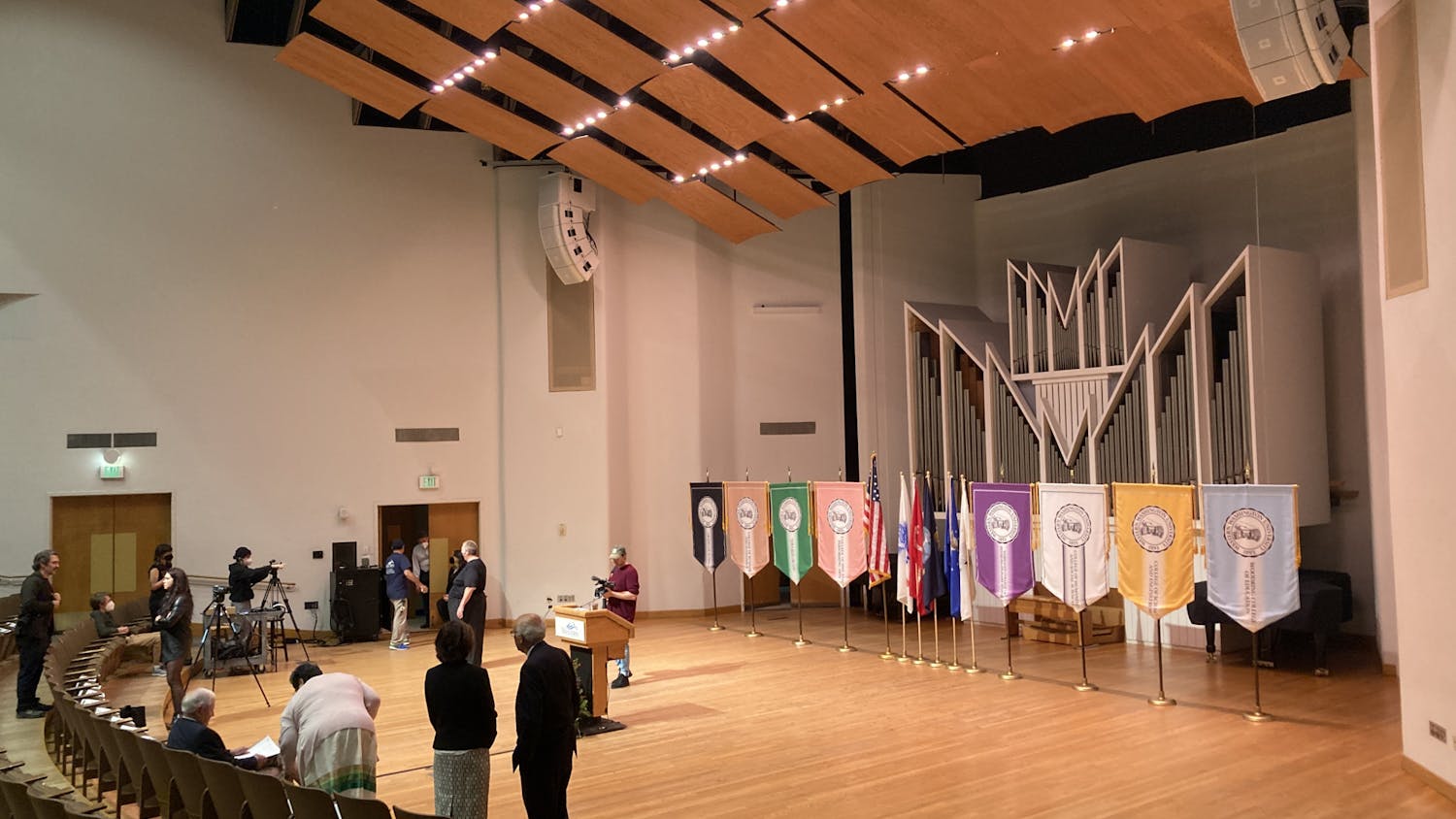The City of Bellingham, partnering with several nonprofits, will host an Earth Day work party April 22 from 9 a.m. to 12 p.m. at the Sehome Hill Arboretum.
The Earth Day event continues a tradition of volunteers restoring parks at weekend work parties through the Bellingham Parks Volunteer Program.
Work parties run from 9 a.m. to 12 p.m. most Saturdays, and no experience is necessary. Gloves and tools are provided, but participants should dress for the weather.
Key to the Bellingham Parks Volunteer Program’s efforts is partnerships with nonprofits, designed to teach volunteers about stewardship. The city will co-host the Earth Day work party with Learning Environment Action Discovery, the Whatcom Million Trees Project and the Washington Trails Association.
“It’s very therapeutic to just get your hands in the dirt,” said Jessica Darlington, a third-year environmental science major at Western Washington University who has volunteered with the program a few times. “I was excited to continue meeting new people and giving back to the community.”
The work party will use the Miyawaki restoration method of planting trees in urban areas to quicken their development into stable climax forests.
Hannah Lewis, author of “Mini-Forest Revolution,” will speak at the event. Lewis’s work and writing surround sustainable agriculture and the use of the Miyawaki Method.
Earth Day volunteers will remove invasive Himalayan blackberry and English ivy, then transition to planting native trees.
“You see this transition from a very diverse plant community in a riparian zone to a monoculture of one type of plant, and that’s your Himalayan blackberry,” said Jenise Bauman, a forest ecology professor at Western. “Ivy is even worse. Ivy’s going to flourish and begin to grow up trees, strangling trees, weakening trees and bringing them down.”
Bauman said the Miyawaki method’s aim of quickening forest development helps sequester carbon. Plants pull carbon out of the atmosphere and store it in their root biomass, helping to reduce greenhouse gasses.
“There will probably be something like 150 people there working on planting almost 1,000 trees,” said Michael Feerer, executive director of Whatcom Million Trees Project.
A local nonprofit with the goal of protecting and planting one million trees in the county, the Whatcom Million Trees Project has planted 927 trees and protected 280,548 mature trees since its formation in 2021.
Feerer said the organization formed in response to an unmet need for restoration in urban areas. While similar nonprofits were dedicated to riverbank restoration, Feerer said there was less focus on the “uplands.”
“In the whole succession realm, you’re forced to go through a series of stages from bare ground through small plants and eventually they hit a state climax forest,” said Brandon McWilliams, co-director of LEAD, a graduate student-led organization. “[The Miyawaki] method in theory can reach that state in a fraction of the time it would take naturally, so it can do 10 years rather than 100.”
Sehome Hill Arboretum is co-managed by Western and the City of Bellingham. McWilliams said neglect of the area left it “completely eaten, an ocean of non-native species.”
Bauman advised volunteers to plant trees suited for soil conditions in an area. Lupin is a good companion seed for newly planted trees because it protects exposed soil and will not compete with the trees.
“You might have to sacrifice plant diversity in the early years to make sure you get a solid native plant solution in place, and then go back and thin out,” Bauman said. “Try to avoid native plant monocultures – but sometimes that’s a tool of the goal.”
The city will also host a series of Earth Day events the week of April 16 to 22.
“I’m excited to come back in 20 years, visit Bellingham again, and hopefully see the trees that we planted,” Darlington said.
Mia Limmer-Lai (she/her) is one of two copy editors for The Front this quarter. She is a second-year environmental studies and journalism student at Western with a minor in honors interdisciplinary studies. In her free time, she enjoys reading books and listening to punk music. You can reach her at mianlimmerlai.thefront@gmail.com.






